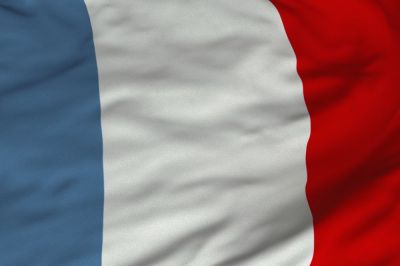France - Master's studies
Population (mln): 65,07
Official language/s: French
Time zone: UTC+1 Winter, UTC+2 Summer
Internet TLD: .fr
Calling code: +33
Member of the EU from: 25th March 1957
Unemployment rate Sep 2011 (%): 9,6
Unemployment rate under 25 years Sep 2011 (%): 22,2
Unemployment rate Sep 2012 (%): 10,8
Unemployment rate under 25 years Sep 2012 (%): 25,7
Population statistics 20-29 age group 2011 (%): 12,6
Country codes in education system: FR
Expected duration of education (years): 16,4
The
second cycle in the post-Bologna system leads to the Master Recherche (formerly
Diplôme d'études approfondies - DEA) or to the Master Professionnel (formerly
Diplôme d'études supérieures spécialisées - DESS) corresponding to 120 ECTS
after the Licence. In the pre-Bologna system it used to lead to the Licence,
one year after the DEUG, and to the Maîtrise one more year after the Licence.
The Maîtrise has been maintained as an intermediate diploma and can be awarded
one year after the Licence upon request of the student. The “Grade de Master”
has been awarded since 1999 to holders of DEA, DESS, of some Engineering
degrees (Titres d’ingénieur) and of some écoles de commerce degrees (diplômes
visés). In professional fields, the following Maîtrises can still be awarded :
Maîtrise des Sciences et Techniques (MST), Maîtrise des Sciences de Gestion
(MSG), Maîtrise des Méthodes informatiques appliquées à la gestion (MIAGE).
The
Magistère was awarded three years directly after the DEUG (or the DUT). It is
not a national diploma, but rather a "diplôme d'université" (DU)
accredited in the past by the ministry of education. It associates fundamental
and scientific knowledge, professional applications and introduction to
research. It is possible to distinguish between general magistères, prepared
together with a DEA or master recherche, leading to a doctorate, and the
professionally oriented magistères, usually prepared together with a DESS or
master professionnel. Not being a national diploma, the magistère has no legal
protection and accreditation procedures stopped in 1988 - 1989. With the
implementation of the Bologna system in 2004, some magistères disappeared.
Maîtrise holders of Instituts universitaires professionnalisés and engineering
students in their last year of engineering school can be admitted to a Diplôme
de Recherche technologique (DRT) (Technological Research Diploma), a third
cycle diploma issued after completion of a course centring on innovation
through technological research in the industrial sector and service industries.
The DRT marks the successful completion of a programme of 18 months to two
years that is carried out in an industrial or service-oriented scientific
environment. In Medicine this cycle (DCEM) consists of four years of study and
hospital internship. In Dentistry and Pharmacy, it leads to the Diplôme d'Etat
de Docteur en Chirurgie Dentaire and to the Diplôme d'Etat de Docteur en
Pharmacie after six years. In the Grandes Ecoles, a Diploma is awarded in
Engineering or Commerce, generally three years after two years at university or
at CPGE.
The Titre d'Ingénieur is conferred upon successful completion of five
years of study beyond the Baccalauréat. Some école d’ingénieur accept students
on the basis of a competitive examination generally taken two years after the
Baccalauréat (in this case, studies last three years at most) or according to
the Baccalauréat results, followed by aptitude tests and an interview (in this
case, studies last four or five years). The établissements d'Enseignement
supérieur catholique, besides preparing to State diplomas at this level (in
agreement with a public university), offer four-year and six-year ecclesiastic
canonical qualifications.
